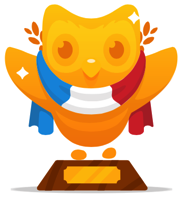 In the last year or two, I've rekindled an interest in learning languages. I follow a lot of industry blogs from all over the world, and it's nice to give Google Translate a break sometimes. In the process, I've discovered an amazing variety of resources that weren't around when I was taking classes in school. It's worth a try if you're interested, and you should be—the science says that learning another language is good for your health.
In the last year or two, I've rekindled an interest in learning languages. I follow a lot of industry blogs from all over the world, and it's nice to give Google Translate a break sometimes. In the process, I've discovered an amazing variety of resources that weren't around when I was taking classes in school. It's worth a try if you're interested, and you should be—the science says that learning another language is good for your health.
Discovering the Language-Learning Community
One of my early discoveries was Kris Broholm's Actual Fluency podcast, where he interviews people in the language-learning community. Lesson one: there is such a thing. Kris's early interviews were a big help in getting up to speed on the tools and techniques people use to learn a language (unrelated to taking a class in school in any country). His resources page is the first of several worth exploring.
Books for the Shelf Shelves
Learning something new is always a good excuse to add to the library, and as I get farther into this project, the language section is growing rapidly. The used- and donated-book sale at the public library was a huge opportunity to find imports that would have been much more expensive otherwise. Although Amazon's good for finding good foreign language books in used book stores abroad (salut, Asterix!).
I have dictionaries, grammar books, readers, and random books in the languages we're learning (it's become a family thing), but I've also found some good how-to-learn titles, such as Benny Lewis's Fluent in 3 Months and Gabriel Wyner's Fluent Forever. Fi3M is light, but quick and encouraging. FF is more practical; the meat of it is a spaced-repetition based strategy with detailed instructions and available templates for using Anki. Be sure to check out the web sites (FF, Fi3M) for more resources, as everyone playing in this space tends to share their own lists and have a blog. Find someone with a language book or course, and you'll probably find a helpful newsletter, too.
Helpful Software Tools
The usual suspects for software are Anki, MemRise and Duolingo. Try ’em all. Duolingo is fantastic for getting a quick (and free) taste of a new language. Anki is the least pretty, but it’s the one that lets you make your own flashcards for spaced repetition, which is what Gabriel recommends in Fluent Forever (other flashcard apps don’t do spaced repetition). The thing that convinced me is that what Gabriel says is in complete agreement with what I’ve read about learning in Make in Stick, a great book on the neuroscience of learning.
Media, Educational and Native
I like the computer-based tools, but I've found value in the old-school listen-and-repeat audio courses, probably best exemplified by Pimsleur. Our public library has many of their courses, so I've been able to go through them as I exercise. I like their conversational approach and the help with pronunciation, but it should be just one component of the plan.
The big step is finding native media in your target language. I’m using podcasts from foreign news media, live streams of TV networks, and (of course) foreign movies. Find something you like; I once had a Thai roommate who was addicted to an American sitcom that his English class had used. Programming designed for non-native speakers is a nice intermediate step. iTunes, YouTube, Netflix and Roku really change the world when it comes to international and foreign-language programming. All it takes is a little searching.
Opportunities with Real People
Everyone recommends talking with real people as soon as possible. In the physical world, you can find language and cultural exchange programs in major cities, including some non-profits that exist specifically to share a language and culture. Alliance Française and Goethe Institut are two that I've found. In national capitals you might find programs sponsored by foreign embassies. Elsewhere, look for meetups. In our area, the most popular languages have multiple groups with events at every level.
You can interact with real people online, too. italki seems to be the marketplace of choice for finding tutors, and it also lets you set up a language exchange (partners coach each other on their native languages). The writers I mentioned at the top have more recommendations on language exchanges and everything else, so if that sounds appealing, see what they have to say first.
[Expanding on something I wrote to a friend who was planning a trip to Italy.]
